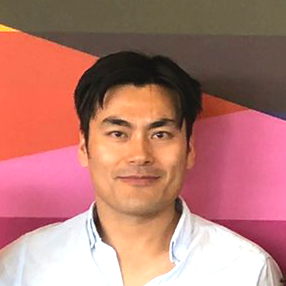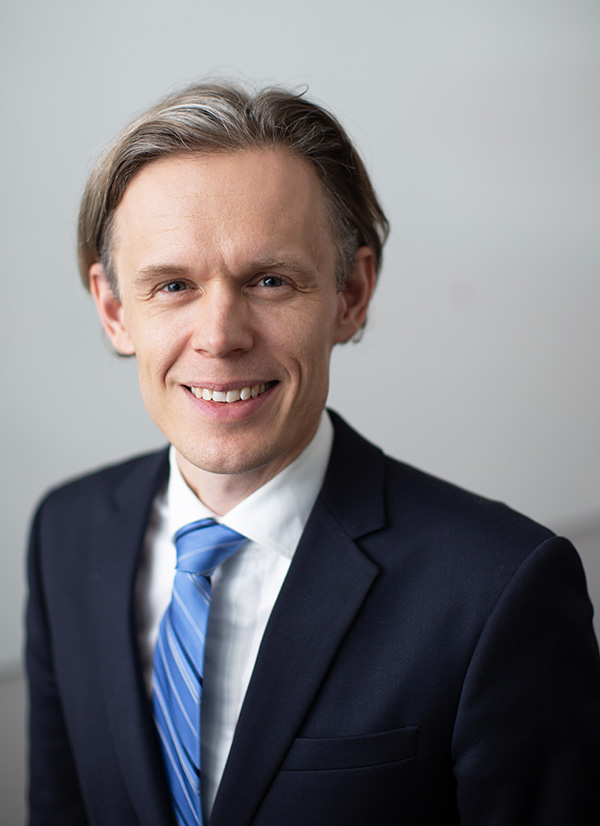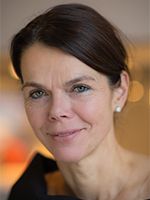Approximately 100,000 people in Norway currently suffer from dementia. We know that the likelihood of developing dementia increases sharply with age, a factor which means that we have to expect more people with dementia as the elderly population increases.
There are fortunately many people conducting research into various dementia diseases and we are continually learning more about the causes and progression of these diseases. In this article, five dementia researchers with different academic starting points answer questions about their work and future developments.
Research into lifestyle choices that reduce the chance of developing dementia
"My research has two main parts," says Geir Selbæk, Professor at the Department of Geriatric Medicine.

“One area is ageing, with a particular focus on dementia, in large Norwegian population studies. In the Trøndelag Health Study (HUNT), we follow approximately 10,000 elderly people over four years. We study information about health and lifestyle that they have repeatedly provided, as well as biological data such as DNA and other samples. Finally, we can link the information to regional and national registries.
This enables us to investigate how a wide range of factors throughout life influence the risk of developing dementia, how dementia impacts quality of life and how we use different health services.
The other main part of my research is the diagnosis of dementia. We are on the threshold of a new era when concerning the diagnosis and treatment of dementia. The Norwegian Registry of Persons Assessed for Cognitive Symptoms (NorKog), which I lead, provides a unique opportunity to map diagnostic practice in this area. Here information is collected about persons assessed for cognitive impairment at approximately 50 outpatient clinics in the specialist health service. There are close to 25,000 people in the registry.
I hope to contribute to society enabling people to make good lifestyle choices throughout their lives in order to reduce their chances of developing dementia and that people who get dementia receive the best possible follow-up from when they are diagnosed until they require 24 hour care services.
Since there will a lot more elderly people, we will see a large increase in cases of dementia, which will more than double in the next 25 years. I hope that we manage to improve the quality of services, while at the same time increasing the number of services provided. If we don't find alternative ways of helping people with dementia, my fear is that it may become more difficult to live with the disease.”
You can read more about Geir Selbæk's research here: – People with dementia are worth listening to (forskning.no, in Norwegian.)
We are close to gaining a complete understanding of the causes of Alzheimer's disease
"Those of us in the Evandro Fang group are working on the molecular mechanisms (what happens inside our cells) behind aging, and age-predisposed Alzheimer's disease," says Evandro Fang, Associate Professor at the Department of Clinical Molecular Biology.

“Our laboratory opened at UiO and Akershus University Hospital HF (Ahus) in 2017, and we are now a young international research group within the field of anti-ageing, with students from more than eight countries.
Our aim is to develop effective medicines that can slow or even stop the progression of Alzheimer's disease which are based on deeper disease mechanisms discovered in our lab. While there is currently no cure for Alzheimer's, studies suggest that it is possible to delay the onset and progression of the disease. Measures that can help include regular exercise, a healthy diet (with supplements based on research) and good family and social networks.
I was very proud and happy to have been involved in the series Dementia Choir when I made an appearance in episode 5 of the first season. As a researcher, I believe these types of channels are among the most effective ways in which we can disseminate our scientific discoveries to the general population, and hopefully be of benefit to their daily lives.
By taking advantage of modern scientific methods, we are close to gaining a complete understanding of the causes of Alzheimer's disease. This will enable us to develop effective means of delaying or preventing the disease in the future.”
You can read more about Evandro Fang's research here: New method for treating Alzheimer's disease (In norwegian)
A desire to slow abnormal aging
"We are trying to understand how the stability of the genetic material (genome) impacts diseases related to aging, including diseases of the nervous system," says Hilde Loge Nilsen, Researcher at the Department of Microbiology.

“Aging increases the likelihood of developing many common diseases such as cardiovascular disorders, diseases that break down the nervous system and cancer. We also study diseases that cause patients to age rapidly to learn more about how normal aging takes place.
We are studying this in order to understand what distinguishes healthy aging from aging that leads to disease. We want to be able to do something about the diseases related to aging, not with aging itself. Our goal is to find treatments for diseases where aging is an important factor. We also want to find ways to counteract the aging process to reduce the risk of disease.
I believe that by understanding these mechanisms we can find ways to slow abnormal aging, and hopefully contribute to fewer people developing dementia.”
You can read more about Hilde Loge Nilsen's research here: Why do aging nerve cells die? (in Norwegian).
The brain is “cleansed” while we sleep
"We are working on basic research which explores mechanisms in the brain that we believe can prevent the development of dementia," says Rune Enger, Associate Professor at GliaLab in the Division of Anatomy.

“In short, we are looking at how the brain cleanses itself of waste products when we sleep, and how glial cells and the blood vessels in the brain contribute to this "brain cleansing". We believe that the system behind the brain cleansing also removes substances such as amyloid, which has a suspected role in the development of Alzheimer's disease. To study this phenomenon, we observe mice sleeping naturally under the microscope.
In the long term, I hope that through our research we will discover new approaches for the prevention of dementia and other neurodegenerative diseases. We also want to explore why sleep is so important to us.
I believe that there will be treatment options for some types of dementia over the next few years. However, I do not believe that it will be a miracle cure, but rather medicines that can act on certain processes that cause disease. One example is the recently approved anti-amyloid antibodies in the United States that may partially slow the progression of Alzheimer's disease.
Until we find a cure, dementia will continue to be a difficult disease for both patients and their families. However, with the expected increase in the number of dementia patients, my hope is that we will see an increase in societal awareness and that this will better facilitate this large patient group.”
You can read more about Rune Enger's research here: Pumping blood vessels “cleanse” the brain while you sleep (in Norwegian).
Lactate may have the potential to cure and prevent dementia
"In my research, I investigate how substances that the body produces during strenuous physical activity can have the potential to cure and prevent dementia," says Linda Hildegard Bergersen. She is a Professor at the Institute of Oral Biology at Faculty of Dentistry.

"This is especially true of lactate, which circulates in the blood and enters the brain. Once there, it creates new nerve cells and blood vessels, improves the supply of oxygen and nutrients to the brain, and also removes waste products and CO2 more efficiently.
My desire is that both young and elderly people will be able to use physical activity in all forms as a panacea for achieving good health, especially good brain health. I also want to develop an exercise pill that contains the health-giving substances found in the blood during physical activity.
I believe that new knowledge will be developed regarding treatment and adaptation and that this will be better used for people with Alzheimer's. Prevention is paramount, which means that increased life expectancy goes hand in hand with more years of good brain health. I think it will become easier for those with dementia and easier for those closest to them to understand what this disease involves.”
You can read more about Linda Hildegard Bergesen's research here: Lactic acid counteracts Alzheimer's (Apollon, in Norwegian).
